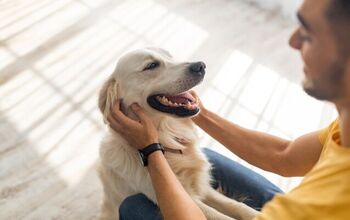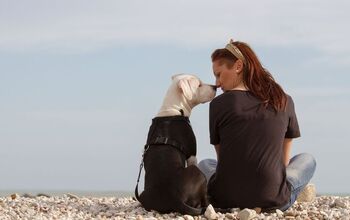Study Reveals Dogs May Live Longer With a Friend at Home

Have you ever considered adding another dog to the family, but you worry about how your current dog will respond? This time can be stressful and uncertain for dog parents, but the results of a new study may help ease your concerns about the possible new addition!
According to researchers with the Dog Aging Project, dogs who get regular social time with another dog have better health than those that lack this social interaction.
Researchers collected data on 21,410 dogs, identifying critical factors in a dog’s environment that could directly impact a dog’s health and longevity. This included income, stability, owner’s age, and socialization.
What did they discover? The researchers concluded that the social interactions a dog is provided have a more significant impact on their health and well-being than the financial situation of their home environment. In fact, the effect of socialization was recorded to be five times as high! This proves that a wealthy home is not necessarily the best indicator of a “good home” for our canine friends (although financial stability and emergency preparedness are still essential).
“This does show that, even for our companion dogs, having those strong social connections and social companions is important,” explained Brianah McCoy, Ph.D. candidate at Arizona State University and one of the study’s lead authors. “Overall, it’s good for your dog to have social support around, in the form of other people and other dogs. Dogs are social animals just like us, so they benefit from being around others.”
In addition to the positive impact of having another dog companion in your dog’s life, the study uncovered some interesting findings.
First, dogs in higher-income households were diagnosed more frequently with more diseases. However, further study would be needed to fully understand this correlation. It is possible that the higher income allowed these dogs access to better quality and more frequent veterinary care, meaning that the rate of disease wasn’t higher; they were just more likely to identify these diseases.
Another interesting conclusion was that a dog living in a home with children was likelier to exhibit poor health. Researchers theorized that this was the impact of resource allocation. As parents dedicated more time to caring for their children (understandably), they had less time to focus on their dogs.
“But the take-home message is: Having a good network, having a good social connectedness is good for the dogs that are living with us,” concluded McCoy. “But the structure and equities that are in our society also have a detrimental effect on our companion animals as well. And they are not the ones thinking about their next paycheck or their healthcare.”
The next stage of the study will look more closely at the connection between the social environment and a dog’s health by incorporating electronic veterinary medical records, at-home physical tests, and other vital data points.
As loving, responsible dog parents, this means that we need to consider the opportunities for socialization that we are providing. This could include having more than one animal in the home, planning play dates with other dogs, or participating in social activities and dog sports where they can interact with others to meet their social needs.

Britt Kascjak is a proud pet mom, sharing her heart (and her home) with her “pack” which includes her husband John, their 2 dogs – Indiana and Lucifer – and their 2 cats – Pippen and Jinx. She has been active in the animal rescue community for over 15 years, volunteering, fostering and advocating for organizations across Canada and the US. In her free time, she enjoys traveling around the country camping, hiking, and canoeing with her pets.
More by Britt























